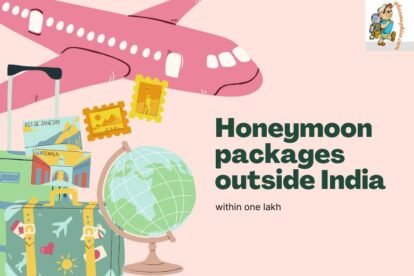India is an important source market for Singapore.
Posted on May 24, 2022 by Ghoomophiro

Singapore is ranked tenth of 115 economies in the Global Travel Development Index released World Economic Forum (WEF), holding second-best place in Asia-pacific and the Eastern hemisphere; however, it continues to make new efforts to reimagine its travel industry post-COVID-19 pandemic.
Singapore Tourism Board (STB), the apex authority on tourism in Singapore, has been working closely with various stakeholders to plan and prepare for the recovery of the travel sector. These measures include retaining key capabilities while reimagining experiences and forging new strategic partnerships to drive demand. To keep critical capabilities, Singapore Tourism Board (STB) ‘s support measures over the past two years have focused on saving numerous jobs and reducing costs for businesses. Keith Tan claimed that these efforts have helped tourism companies retain their workforce and capabilities. He is the Chief Executive Officer of the Singapore Tourism Board. Also, the city’s tourism businesses have invested time to come up with some innovative experiences that are sure to delight visitors to Singapore.
“We collaborated with key partners such as Changi Airport Group, Singapore Airlines, and Agoda. Along with them, we will continue the ‘Welcome Back to Singapore’ global co-brand campaign to instill confidence and drive bookings. Through our partnership with Agoda, we will tap into its technology and travel expertise to reach out to potential travelers in the region,” Keith Tan commented.
Singapore first opened to quarantine-free travel for all fully vaccinated visitors on 1 April 2022, with no testing required. “We launched SingapoReimagine – our international recovery campaign. We aim to take this campaign to tier 2 and 3 markets for the India market by offering personalized experiences to our audience through virtual and on-ground activations,” he added.
The Singapore Tourism Board (STB) has accelerated its digital activation more aggressively during the pandemic. Singapore is currently reimagining a new standard of travel and has developed the Tourism Information and Services Hub for supporting businesses in their tech transformation. Some of the key digital initiatives the Singapore Tourism Board (STB) has undertaken recently are Unique Digital Identity, Hybrid Experiences/Events, Contactless, etc.
“We are actively looking for possible tourism use cases in Extended Reality (XR), an umbrella encompassing all immersive technologies that blend digital content with the real world. These technologies can bring places, people, and stories to life for visitors in an immersive way, from pre- to post-arrival,” he revealed.
While taking these new initiatives to negate the impact of the CoVID-19 pandemic, Singapore Tourism Board (STB) is also focused on driving sustainable business growth. It is constantly incorporating several sustainability elements into its tourism offerings to achieve the vision of becoming a City in Nature. The Board is also developing a destination sustainability strategy and roadmap for its tourism sector in accordance with the Singapore Green Plan 2030.
“We launched the Hotel Sustainability Roadmap, the world’s first collective effort by a city’s hotels. In line with the Singapore Green Plan 2030, the Hotel Sustainability Roadmap sets out clear targets and strategies for hotels to adopt in their sustainability journey. This industry-led roadmap enables Singapore’s hotels to contribute to sustainable development goals and capture new opportunities presented by the Green Economy,” Tan informed.
Singapore’s tourism industry is well-prepared to instill new confidence among travelers. As of April 2022, over 1,600 tourism-related premises are certified SG Clean. Their staff is familiar with COVID-19 protocols, and technology is being deployed across modern experiences to reduce contact and enhance hygiene. The tourism industry has also spent the past two years rolling out many innovative and authentic experiences to appeal to locals, he asserted
“The recovery of business and leisure travel is largely dependent on the evolving health situation and the emergence of new variants like Omicron. As such, we expect it will take a few years for business and leisure travel to recover to pre-pandemic levels.”





